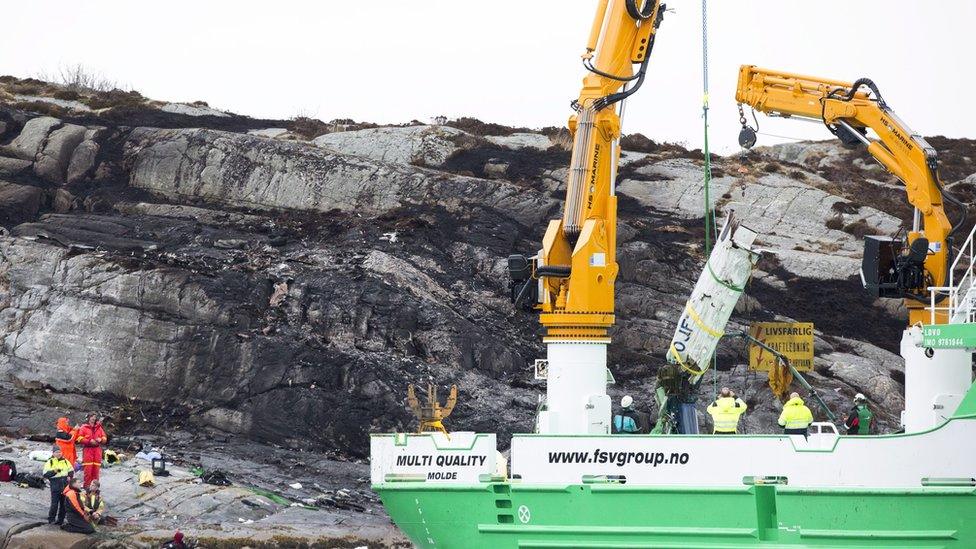Helicopter cracks 'could not be detected' by safety systems
- Published
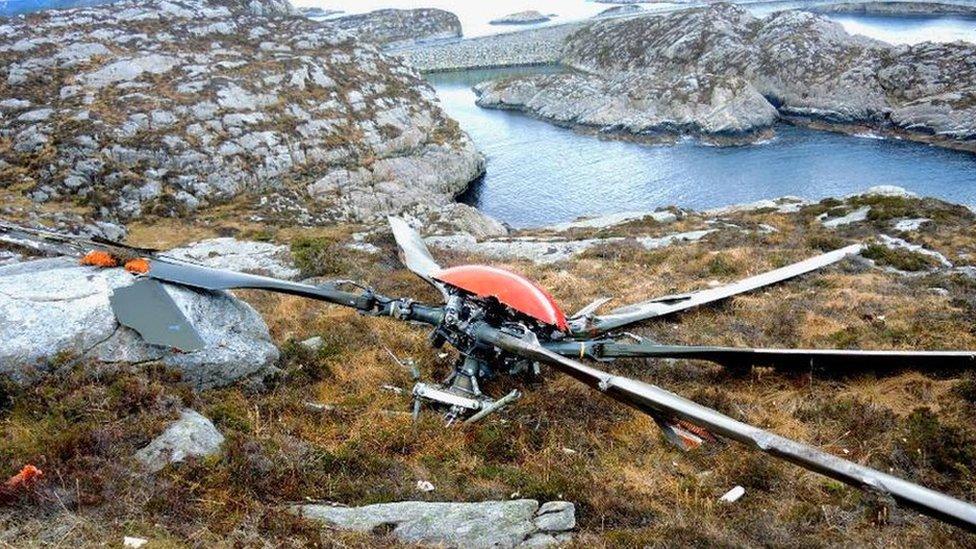
The rotors detached from the helicopter in 2016
Safety systems in offshore helicopters could not detect cracks similar to one which caused a crash in Norway which killed 13 men - including an oil worker from Aberdeenshire - a report has found.
The Super Puma 225 came down near an island near Bergen while returning from an oil field in April 2016.
Iain Stuart 41, from Laurencekirk, was one of those who died.
An Accident Investigation Board Norway report has made 12 recommendations, external.
Manufacturer Airbus said it had made significant changes to the design of the gearbox and monitoring and was working on a new vibration detection system.
The report identifies "clear similarities" in the crash with the loss of another Super Puma off Peterhead in 2009.
'Not sufficient'
The UK investigation following that incident, which left 16 men dead, "clearly established" that it was caused by a fatigue failure in the main gearbox.
However, the new Norwegian inquiry said: "Post-investigation actions were not sufficient to prevent another main rotor loss."
Witnesses described seeing the body of the helicopter fall nearly vertically before crashing onto the small island where it exploded.
The rotor blades continued to turn in the air before falling to the ground a short time later.
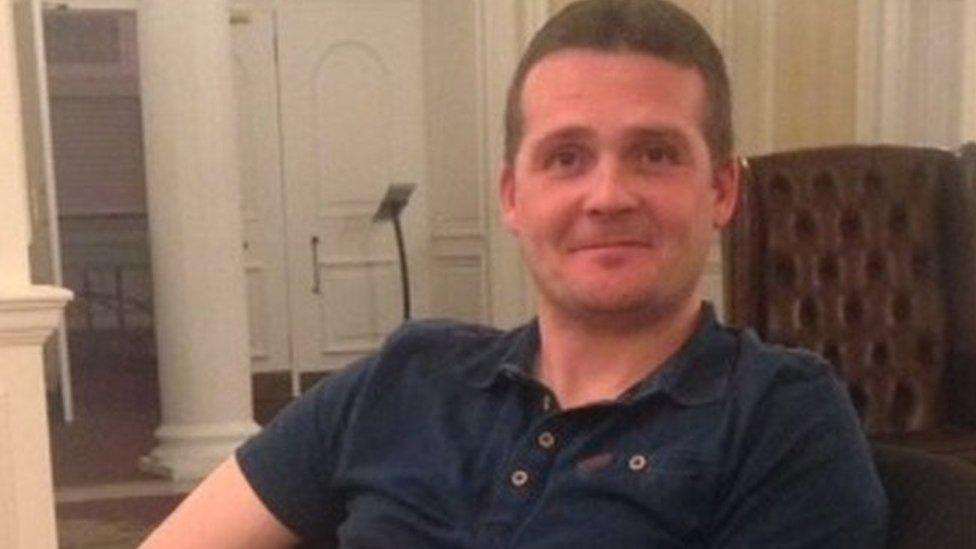
Iain Stuart was among those who died
The report follows a two-year investigation into the accident.
A crack in the main gearbox was not picked up by on-board detectors.
In its conclusions, the report said the design of the present on-board safety monitoring system "is unable to detect fatigue fractures in second stage planet gears".
The report makes recommendations to the European Aviation Safety Agency to commission research into the development of cracks in such components.
It also called for a change to the design of large helicopters so that cracking in a single component cannot lead to a "catastrophic failure".
'Increasing robustness'
An Airbus spokesman said: "Airbus Helicopters is committed to the continuous improvement of the H225 MGB with the objective or increasing robustness, reliability and safety, as highlighted in the AIBN (Accident Investigation Board Norway) recommendation.
"This includes, among other initiatives, a roadmap for the development of new vibration monitoring methods which will be shared with industry in due course."
Tommy Campbell, regional officer for the Unite union, said he welcomed the report.
He added: "The report's findings will reinforce the stand being taken by offshore workers that the North Sea must remain Super Puma free."
One witnesses saw the helicopter approaching before he heard a metallic sound and the rotor detach.
He described it as an "explosion in the sky".
The helicopter then fell to the ground and burst into flames.
Lewis Macdonald, Labour MSP for North East Scotland and spokesman on energy, said: "This report has been a long time coming, and concludes that some critical safety concerns relating to the Super Puma are not yet fully resolved.
"The case for a full inquiry into helicopter transport in the UK sector of the North Sea is strengthened by these findings, and it is a case Labour and the offshore workers' unions will continue to pursue both at Holyrood and at Westminster.
"On the thirtieth anniversary of the Piper Alpha disaster, safety offshore must come first and the views of those who work there must be given the highest priority."
- Published28 April 2017
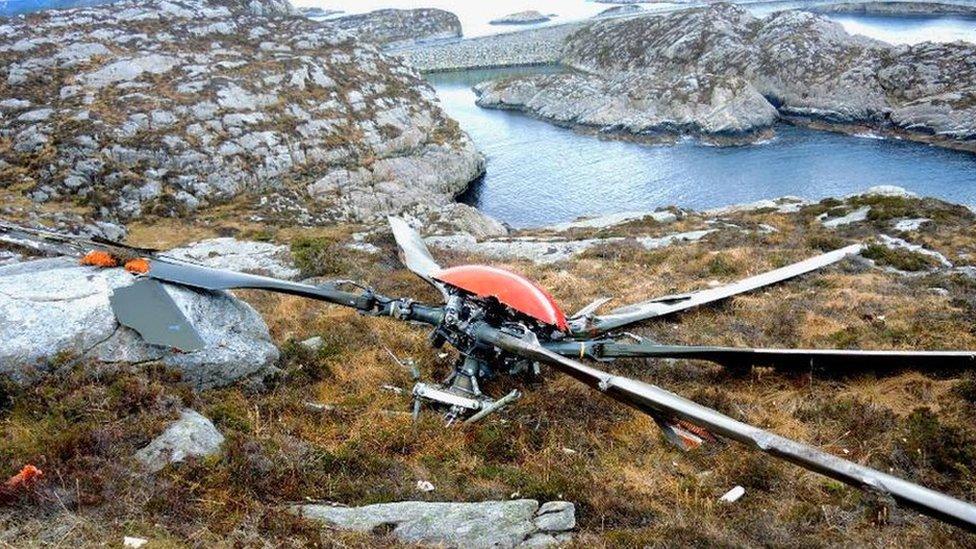
- Published27 February 2017
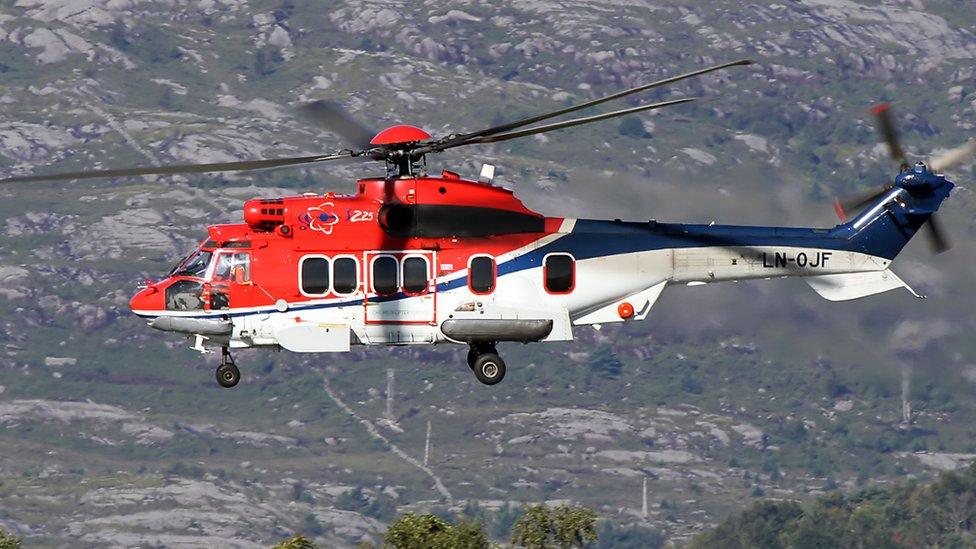
- Published28 June 2016

- Published1 June 2016

- Published13 May 2016
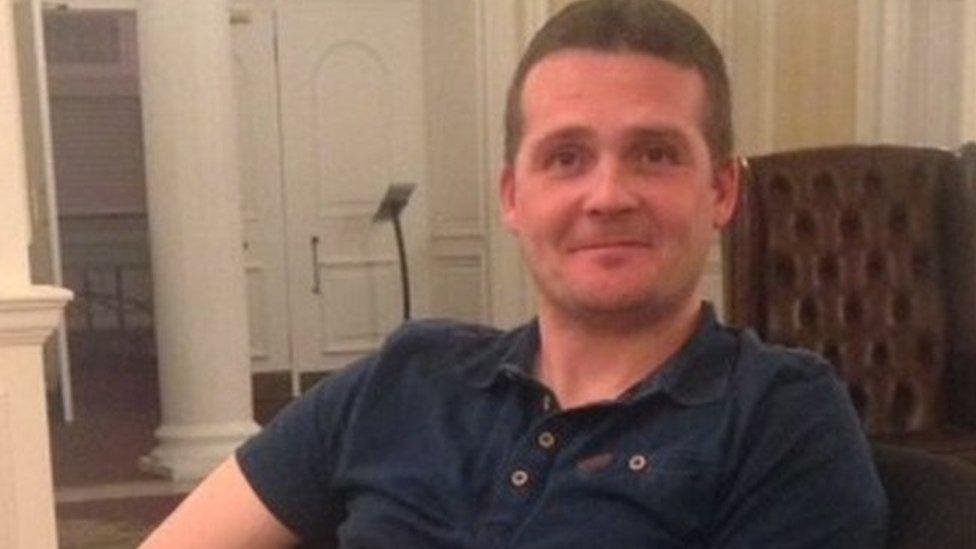
- Published1 May 2016
